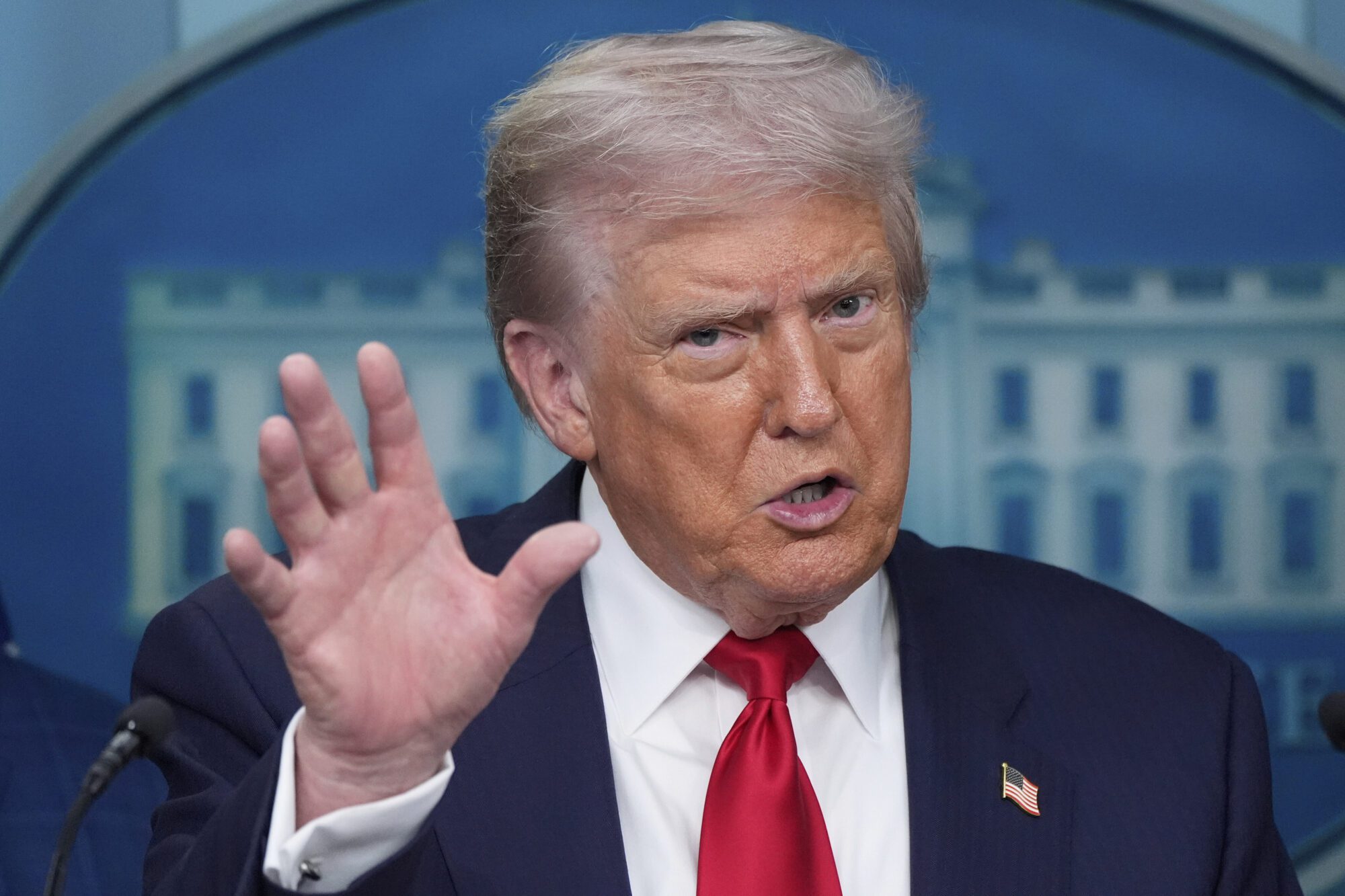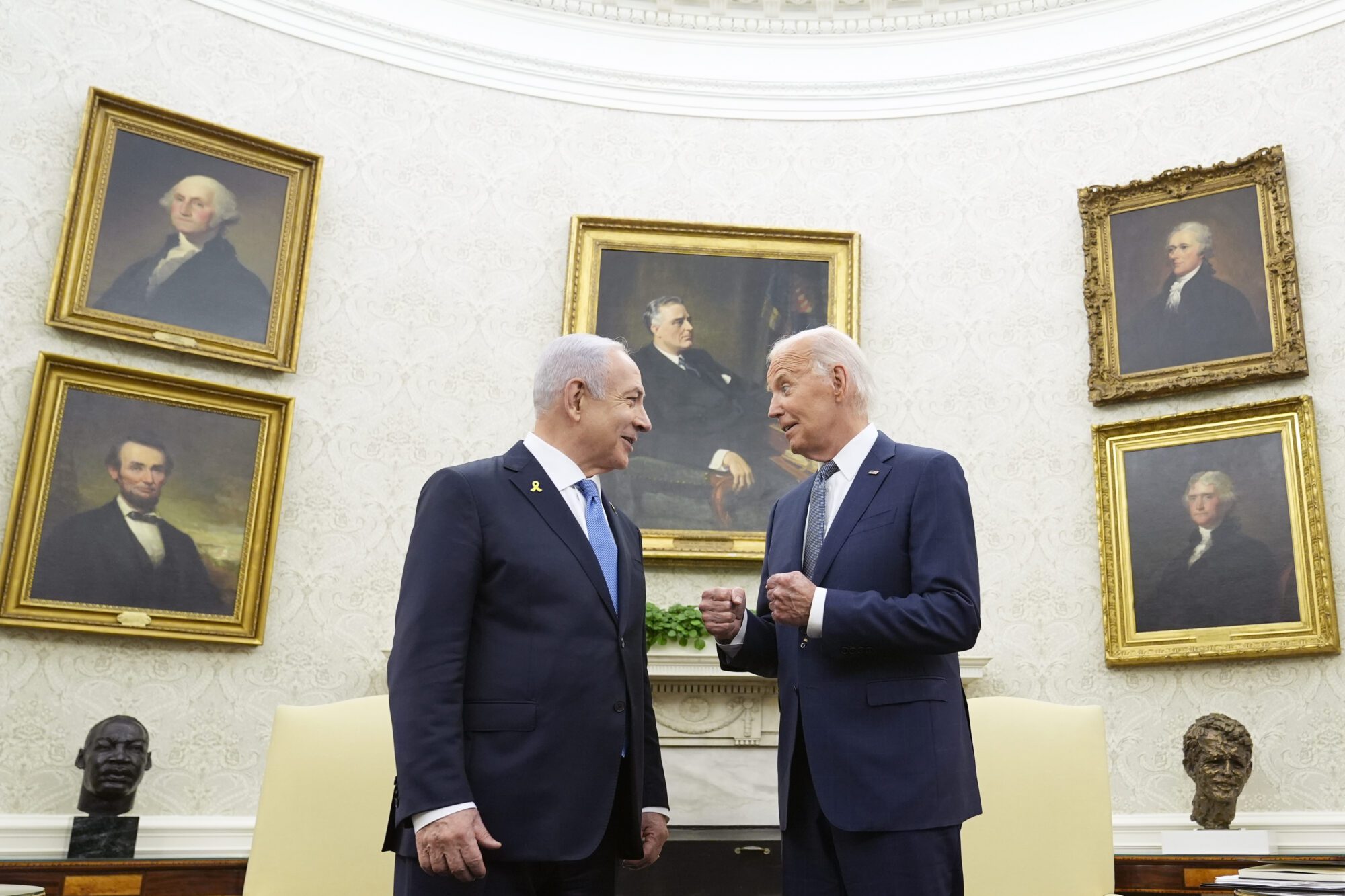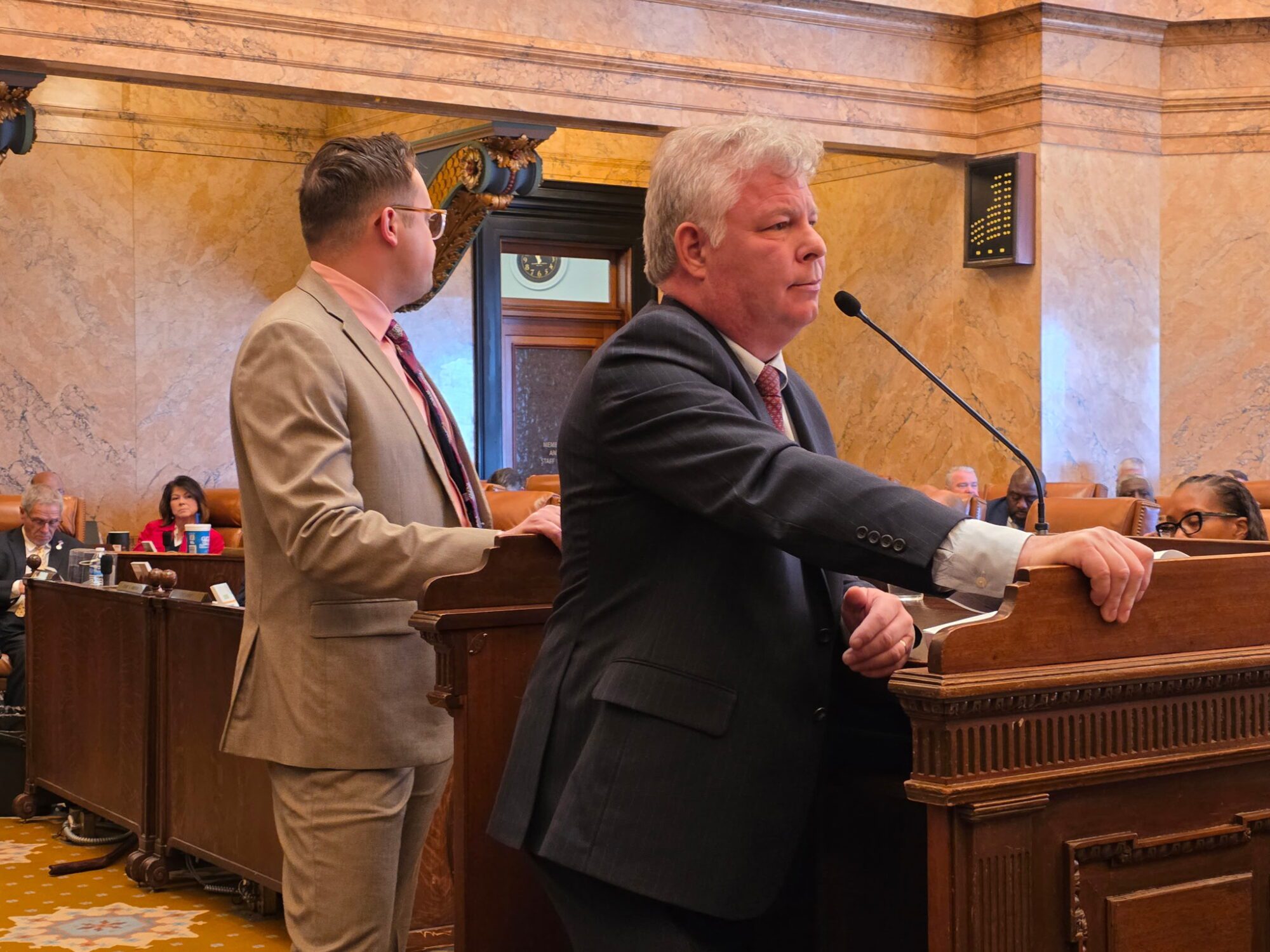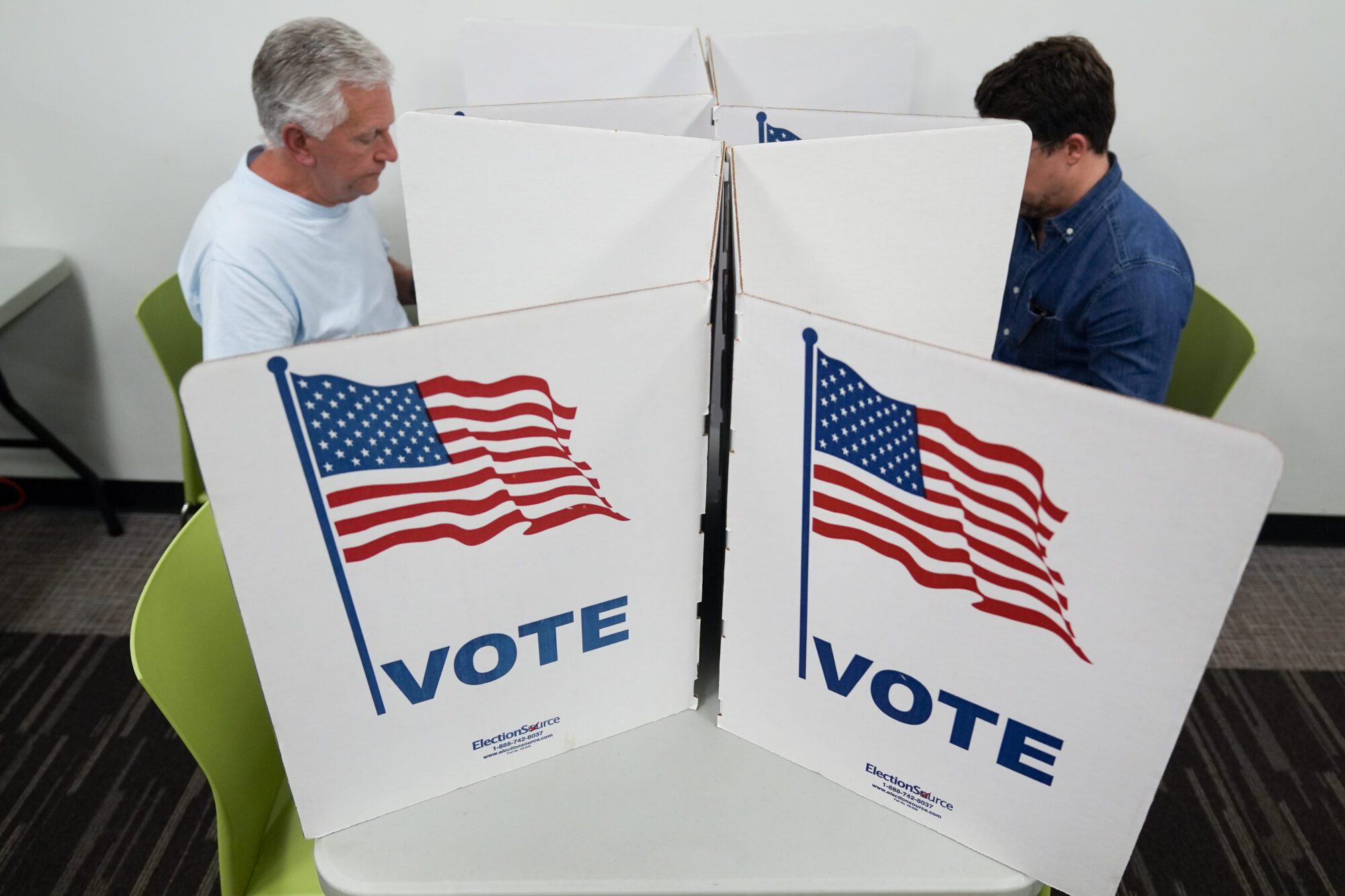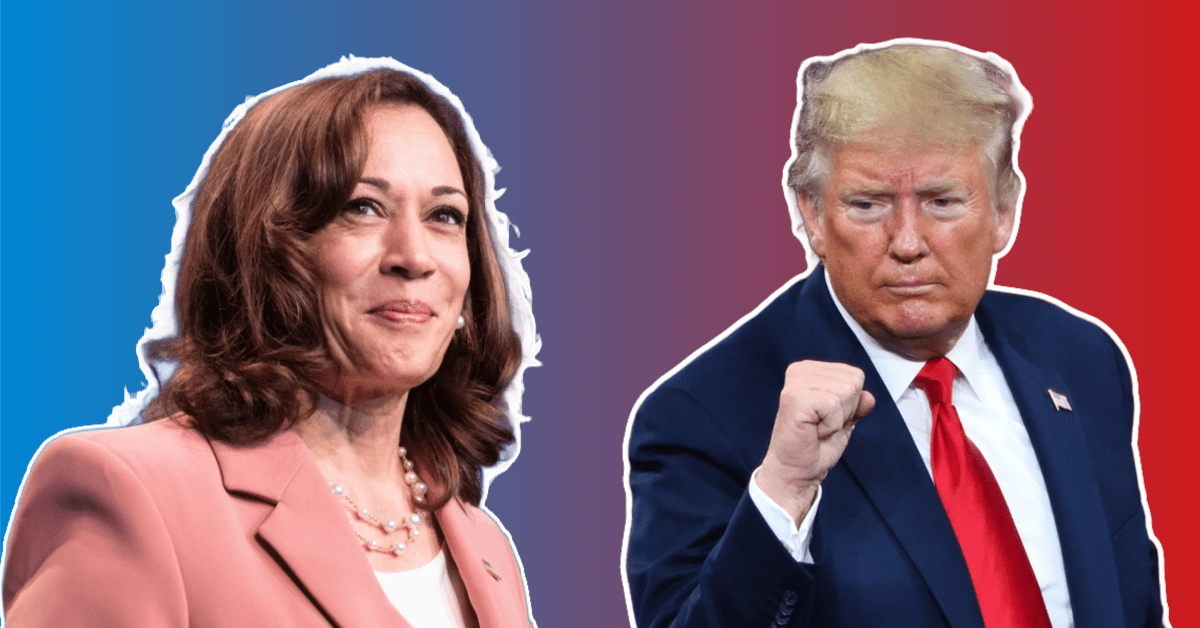
The race for the White House is a dead heat with just two weeks before Americans head to the polls. Already millions of early votes are being casts in the contest between former President Donald Trump and Vice President Kamala Harris.
What are the factors and states likely to decide the race? Is a massive re-alignment of minority and white, college-educated voters underway? Gentlemen (and ladies), start your engines…
On the Polls
Every day, new polling numbers come out. As I’ve said before, national polls are largely irrelevant. What matters is what voters in the battleground states of Michigan, Wisconsin, Pennsylvania, North Carolina, Georgia, Arizona and Nevada do. The polls in those states continue to fluctuate by the day and week on who leads, but all show the candidates within a hair of one another.
The table below shows the average of polls calculated under the methodologies of three reputable sources through Monday, October 21st.
| Battleground States | The Hill | Real Clear Politics | 538 |
|---|---|---|---|
| Arizona | Trump +1.6% | Trump +1.6% | Trump +1.9% |
| Georgia | Trump +1.1% | Trump +1.8% | Trump +1.6% |
| Michigan | Trump +0.6% | Trump +1.2% | Harris +0.1% |
| Nevada | Tie | Trump +0.8% | Harris +0.3% |
| North Carolina | Trump +0.9% | Trump +0.5% | Trump +0.5% |
| Pennsylvania | Trump +0.2% | Trump +0.2% | Trump +0.4% |
| Wisconsin | Tie | Trump +0.2% | Harris +0.3% |
Obviously, if Trump were to win each of the states he’s currently polling up in, he would eclipse the 270 electors necessary to reclaim the White House.
But, and it’s a monumental “but,” anyone who looks at current polling in these states and expresses a modicum of confidence in how the race will turn out is full of it. There are real time polls in these same states that show the opposite result and almost all of the polling is within the margin of error. It bears mentioning that if this was the 2016 polling environment, it likely would be undercounting Trump’s support. But 2022 polls overcounted support for Republicans in the midterm. So proceed with caution in assigning bias one direction or the other.
In 2020, Joe Biden won all of this year’s battleground states, save North Carolina, on his path to 306 electors and the presidency. If forced to bet on it, I’d bet that Trump flips Arizona and Georgia, that Harris maintains Michigan, Nevada and Wisconsin, and that the race comes down to razor thin margins in Pennsylvania and North Carolina. But it would be a bet.
Ronald Mc-Donald & Working Class Populism
Over the weekend, former President Trump moonlit as a fry cook and window worker at a McDonald’s in Pennsylvania, a key battleground state. Critics called it a campaign stunt (as if that’s a rarity), but the appearance speaks to a broader strategy to paint Trump and the Republican Party as the working man’s champion. It was smart.
The Republican Party used to be defined as a three-legged stool, with limited government conservatives, evangelicals, and so-called “neocons,” who support more robust foreign entanglement, forming the coalition. While there are still limited government conservatives and neocons in the Republican Party, “anti-woke” evangelicals and economic populists are largely driving the bus.
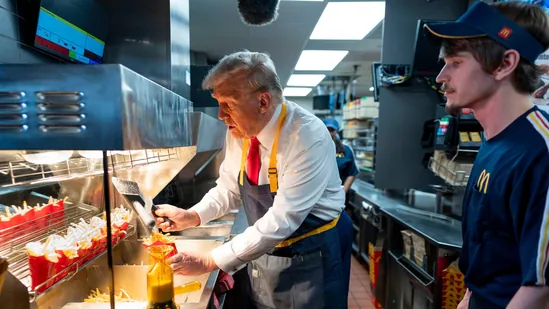
The shift toward culture wars and protectionism has alienated some traditional Republican voters, while bringing new voters to the party. A recent USA Today/Suffolk University Poll found Trump had 17 percent support among Black voters. In 2020, Joe Biden won 92 percent of Black voters. The same poll showed Trump with a 49-38 percent advantage with Hispanic voters. President Biden won 59 percent of Hispanic voters in 2020. These are big shifts if accurate.
The Cook Political Report tracks polls broken down by demographics. Trump has solidified the vote of both men (+10 over Harris) and non-college educated white voters (+26 over Harris). The latter group makes up roughly 44 percent of the electorate. He also leads on pivotal issues, including inflation, the broader economy, immigration and crime.
In 2004, Karl Rove used ballot initiative in support of restricting same-sex marriage to increase the intensity of evangelical Republican turnout and secure George W. Bush’s re-election. Expect much of the closing argument for Trump and Republicans to focus on transgender issues. Polls show that most Americans currently view the far left’s gender ideology push as radical.
Predicting that a brash, billionaire real estate mogul from New York would become the standard bearer for men in the South and Midwest who work with their hands, sit in pews on Sundays, and eat at McDonald’s might have gotten you laughed out of punditry 20 years ago. But Trump’s done just that.
Harris’ Great White Hope
If Trump’s truly eaten into historical Democratic advantage with minority voters, Harris should be in trouble. But re-alignments that shift voters from column B to column A sometimes have the impact of shifting other voters from column A to column B. Harris is banking on two things. First, that the polling showing Trump eating into minority support is wrong and a strong get out the vote effort can close ranks. And second, that she can appeal to disaffected white voters, primarily women and the college-educated.
Her campaign strategy has borrowed from Bill Clinton’s “triangulation” in the 90s. As a candidate, Harris has actively distanced herself from previously held radical positions on open borders, gun confiscation, the Green New Deal, and universal healthcare. Instead, she’s presented herself as a moderate seeking common ground and as a “normal” alternative to Trump.
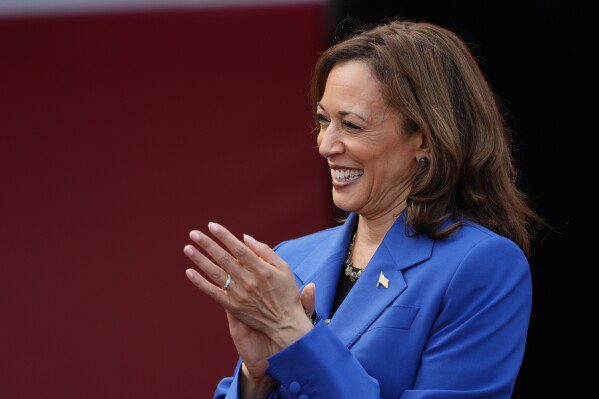
While she still trails on several hot button issues, she’s eaten into Trump’s early leads on things like the economy. Harris bests the former President on questions of healthcare and abortion, a pivotal messaging point aimed at women.
She also leads slightly on favorability, with 49 percent of Americans viewing her favorably, compared to 45 percent for Trump. The country is essentially evenly divided on whether they like Harris. The former President has a negative 10 favorability rating.
There’s some evidence Harris’ strategy is working. The Cook Political Report’s demographic tracker shows Harris with sizable leads among women (+12.5 over Trump) and college educated white voters (+15 over Trump).
The Vice President Who Wasn’t
In the lead up to Walz’s selection as Harris’ running mate, almost all eyes were on Pennsylvania Governor Josh Shapiro. People in the know predicted, with some confidence, he would be chosen. He wasn’t.
Whether anyone in Harris’ campaign will ever admit it, Shapiro’s religion got in the way. He’s Jewish and has a history of making strong statements in defense of Israel.
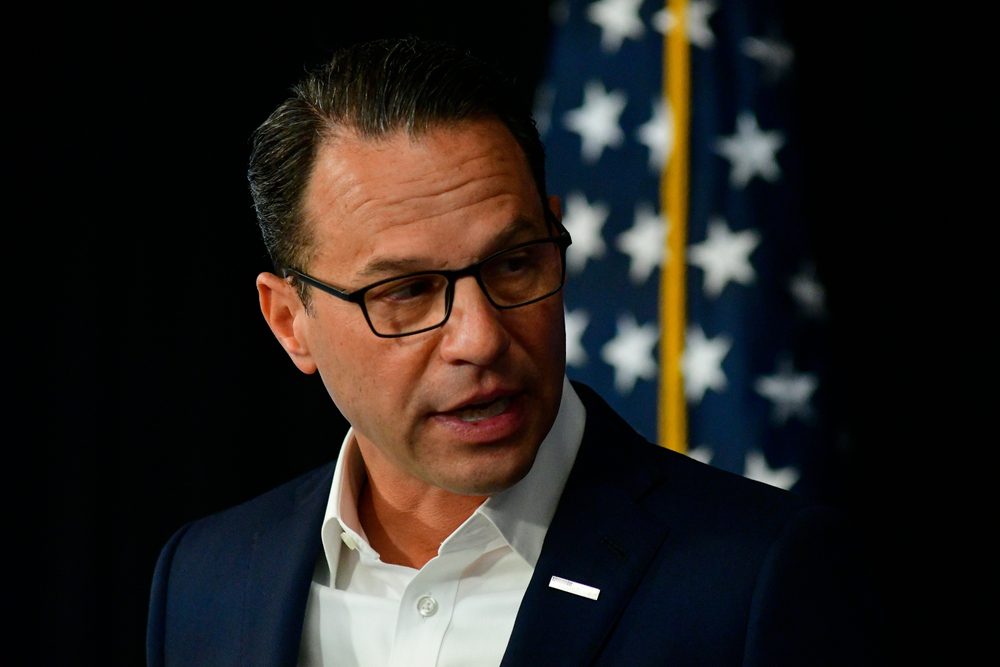
In today’s Democratic Party, that presents some difficulty — in part because of evolving attitudes of young voters that Democrats depend on, and in part, because of increased immigration from Muslim countries. Michigan, for instance, has a sizable Muslim population that votes as a block. In a state that could be won or lost by a few thousand votes, it matters.
Is the shunning of Shapiro under the bridge? Maybe, but if this election comes down to Pennsylvania — as it well might — and Trump carries the state, there will be a lot of second guessing. Harris was going to win Minnesota with or without Walz, and he’s added little to her momentum elsewhere, particularly as routine “knucklehead gaffes” (what used to be called lies) have been exposed. Shapiro on the ticket likely would have locked down Pennsylvania.
